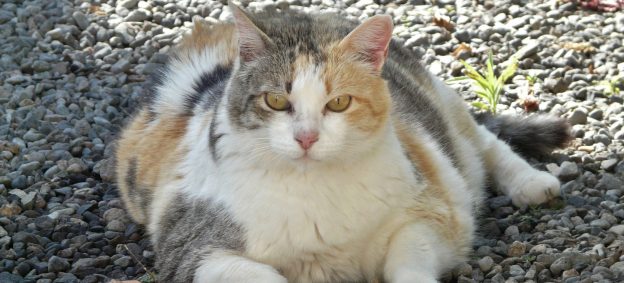Worrying levels of pet obesity in the UK are putting the health of our beloved pets at risk as we continue to feed our furry friends leftovers and treats. Whilst it can be hard to resist those puppy dog eyes, it’s important to remember that over feeding and giving our pets too many treats, could be bad for their health.
Watch what they eat
According to the PDSA, 5.7 million pets in the UK are fed treats every day, and 3.9 million are fed leftovers as their main meals. With 44% of owners saying that they give their pets treats because they believe it makes them happier.
Although it can be hard to say no when your pet is begging for a treat, excessive treats and unhealthy snacks can lead to pet obesity and a cocktail of health implications including:
- Diabetes
- Heart disease
- Respiratory distress
- High blood pressure
- Cancers
Are they getting enough exercise?
1.6 million UK dogs aren’t walked daily. This could be for a number of reasons such as owners believing that playing in the garden is enough exercise and misunderstanding how much exercise their dog needs. But in order to prevent obesity, it is vital for dogs to get enough exercise. Each dog will have different exercise requirements, but some basic guidance can be found here.
We all know that some cats are notoriously lazy; playing with them can really improve, not only their weight and fitness, but their happiness too. Some ideas on how to help your cat get some additional exercise can be found below:
- Encourage them to play outside where it is safe to do so.
- Play with your cat (especially if it is an indoor cat). Find out what your cat’s favourite toy is – it could be a commercially bought toy or simply a piece of paper crumpled up into a ball; but the key to play is to involve you in the game.
- Invest in a cat tower to encourage your cat to jump and climb.
Preventing pet obesity
Help your pets watch their waistline with these top tips:
- Exercise is vital; keeping your pet active will help reduce any weight gain.
- Don’t overfeed your pet – weighing their food instead of estimating can help with portion control.
- Don’t give your pet too many leftovers.
- Keep treats to a minimum; if you do wish to give treats (perhaps for training purposes) consider using some of your pet’s daily food as treats between meals.
If you think your pet might be overweight, contact your local vets for more advice and guidance. You can also check out PDSA’s Pet Fit Club, the ‘UK’s biggest and most successful pet slimming competition’.

